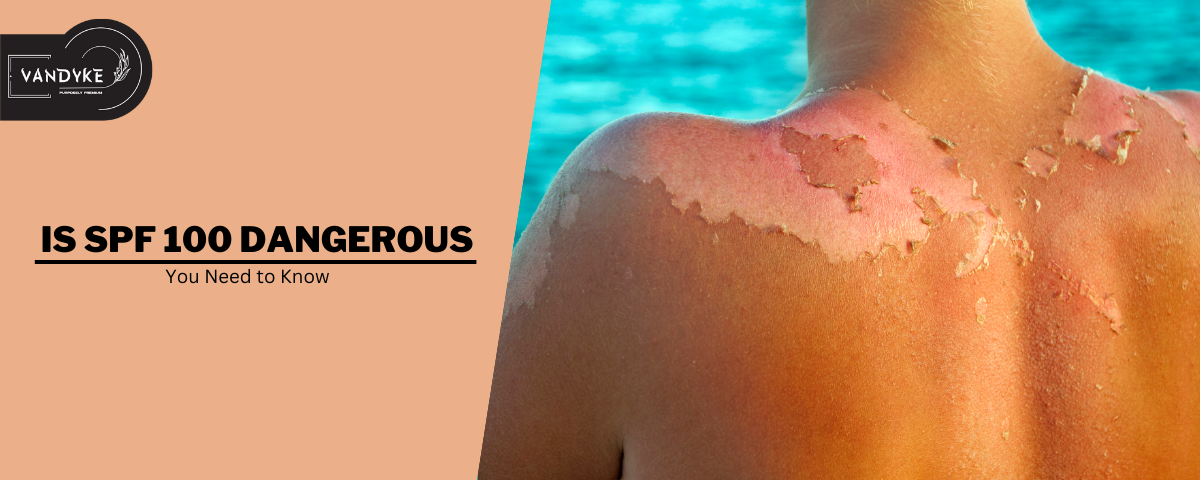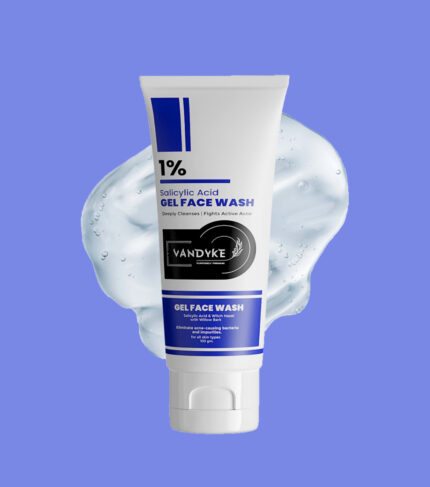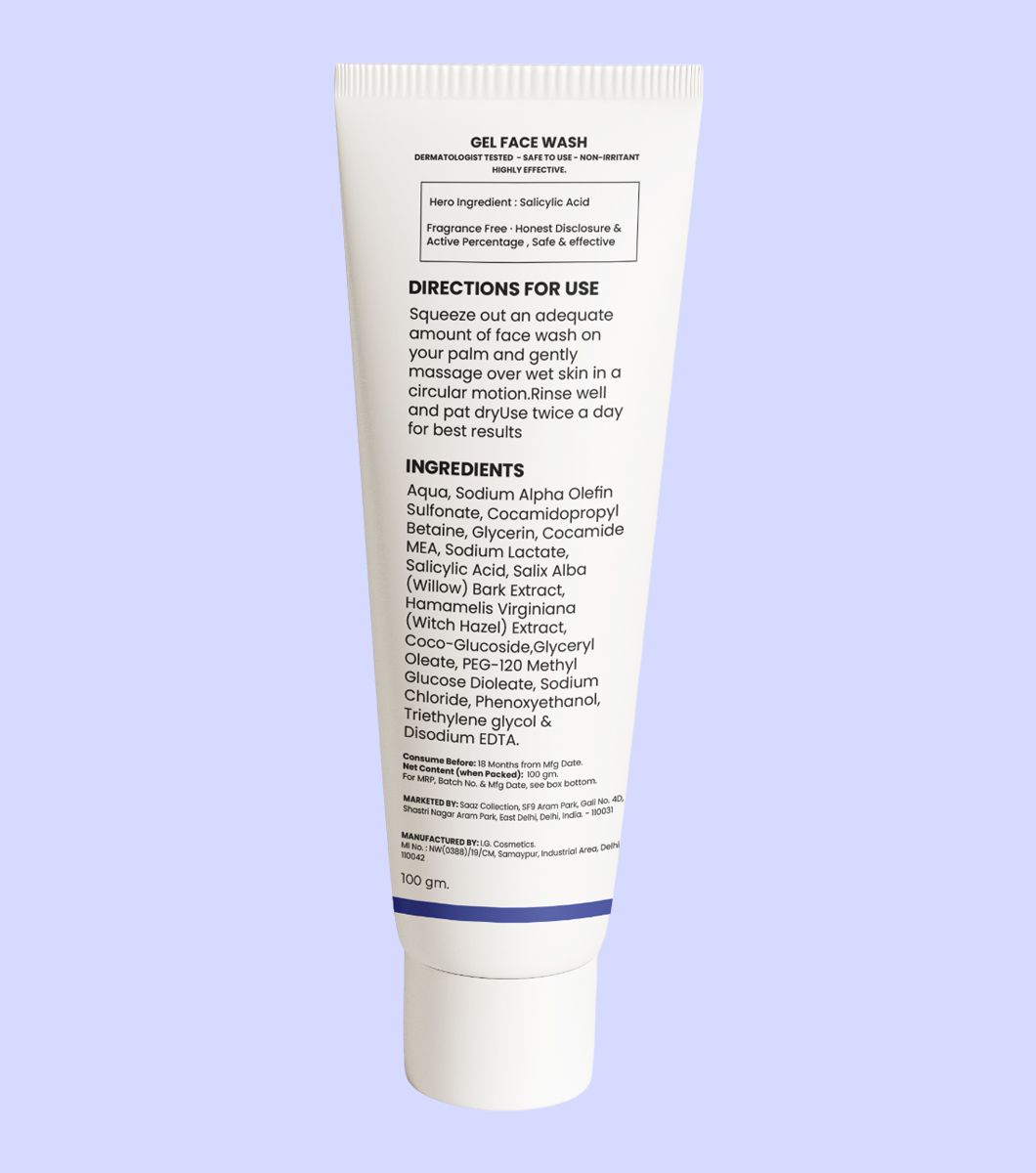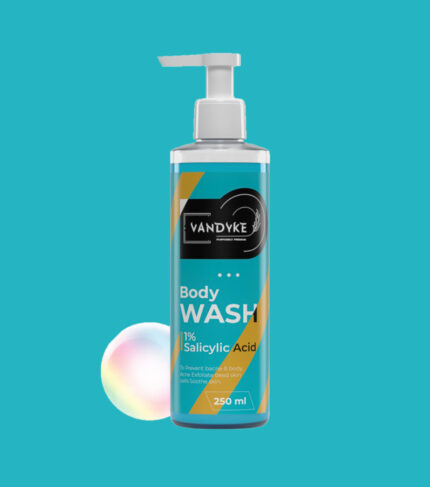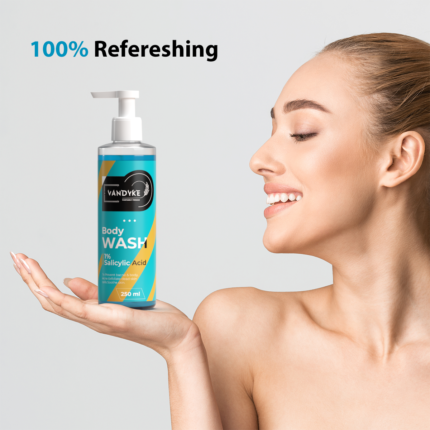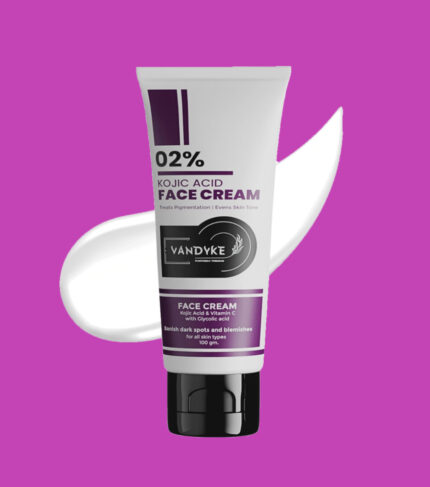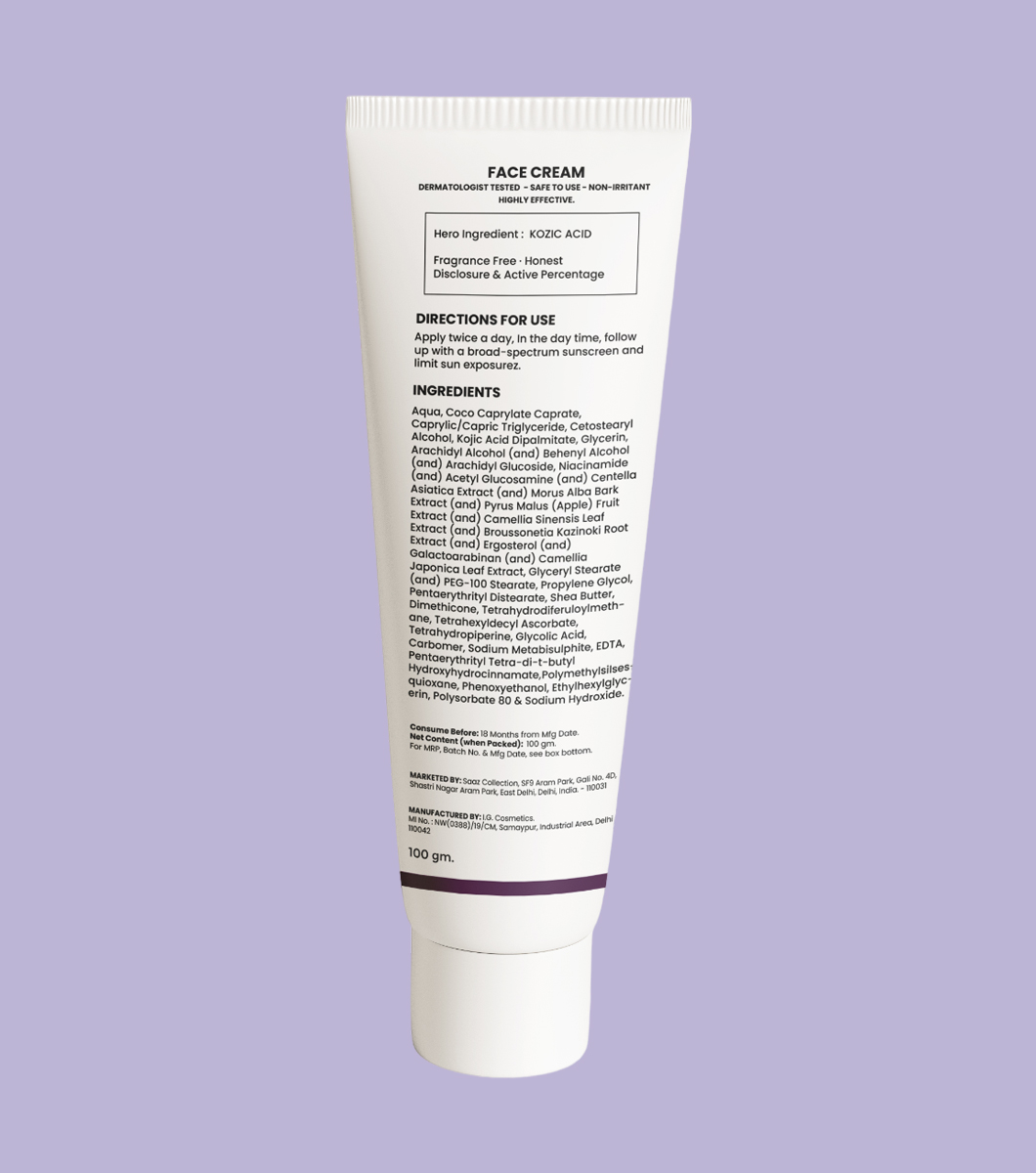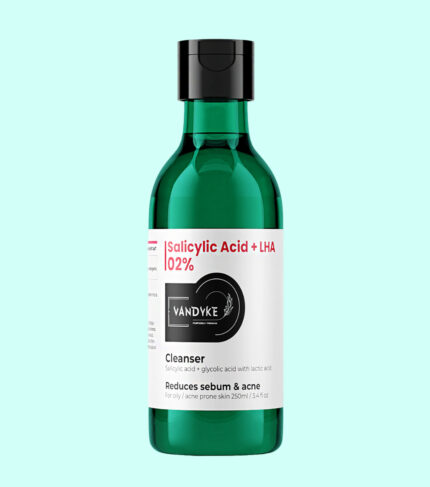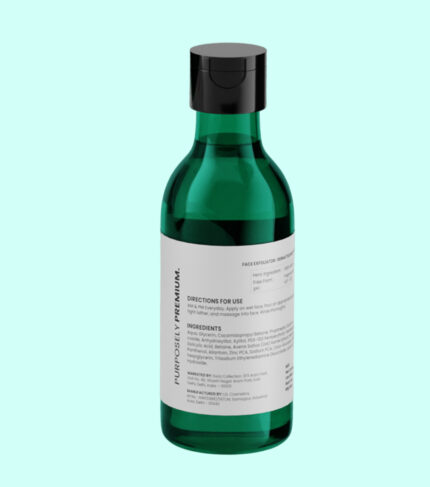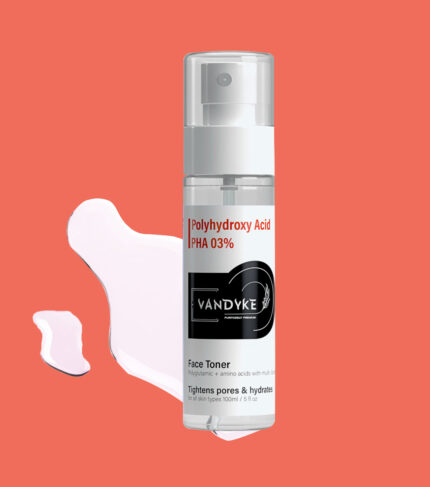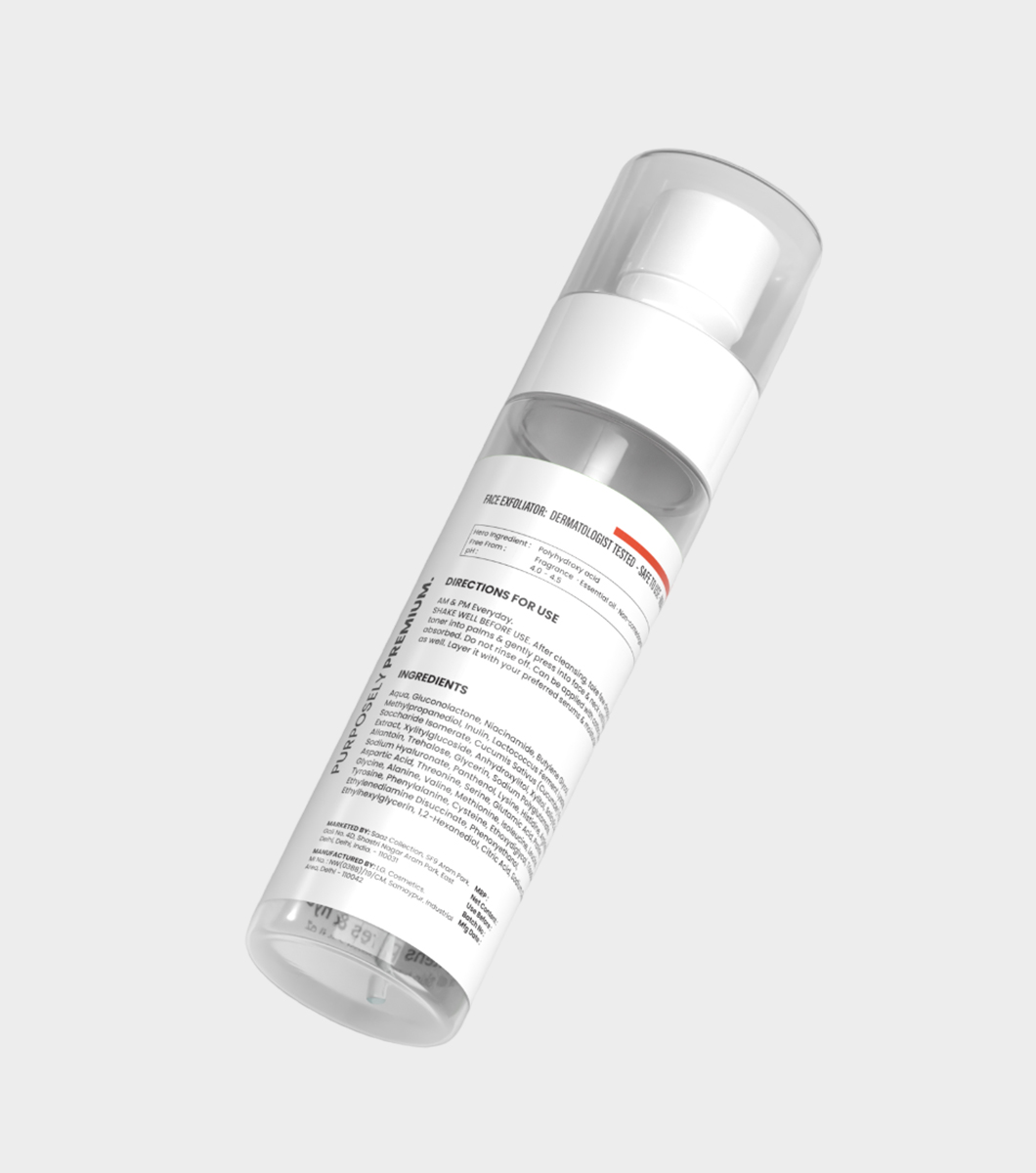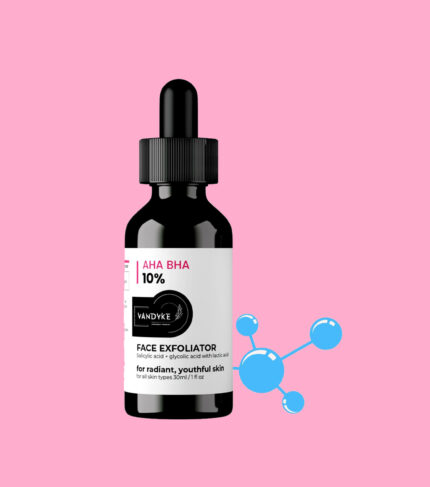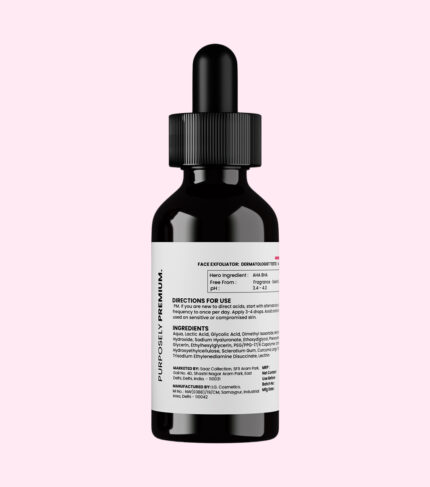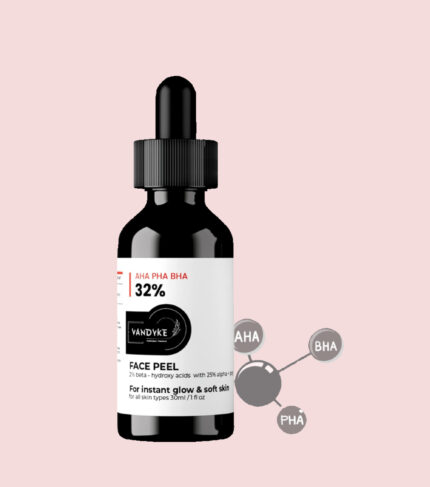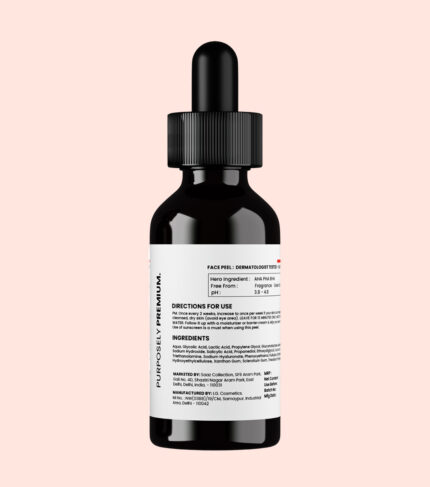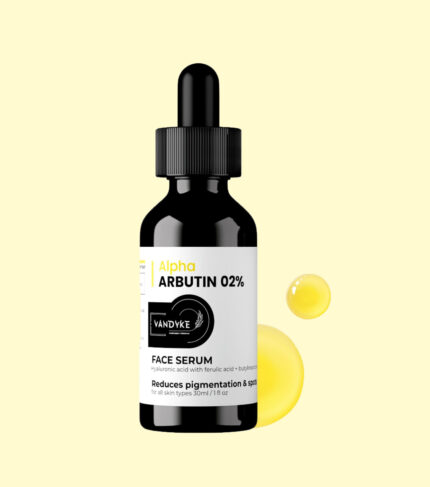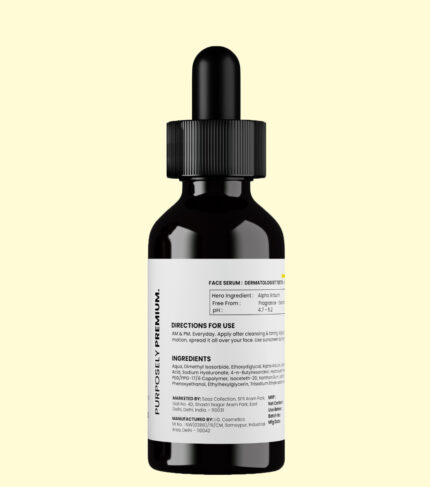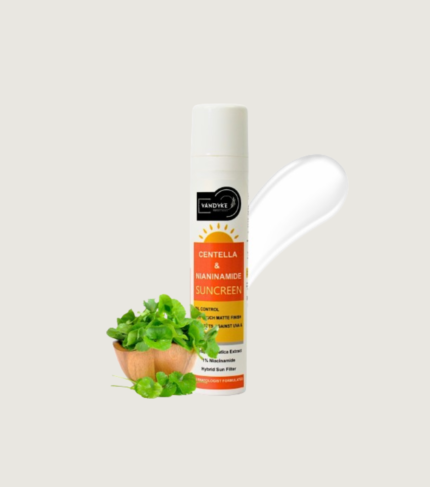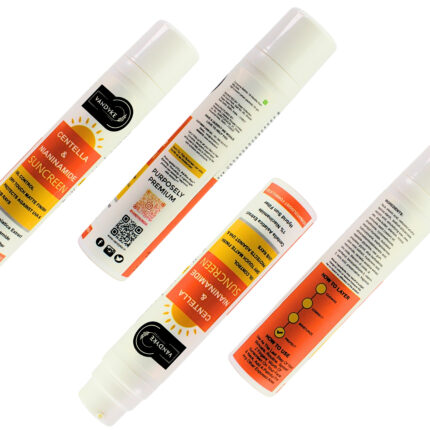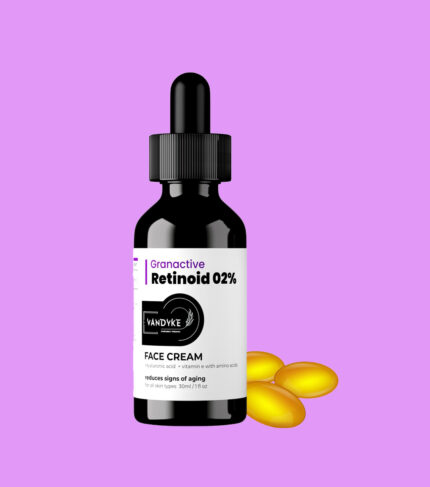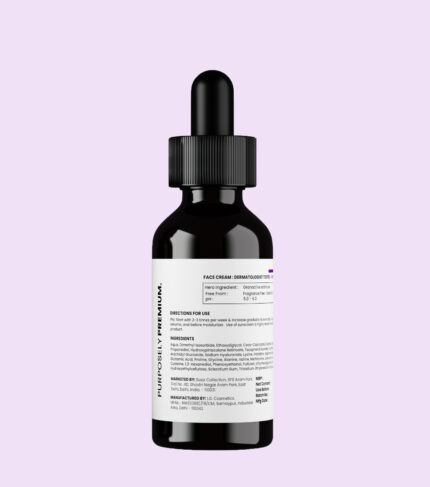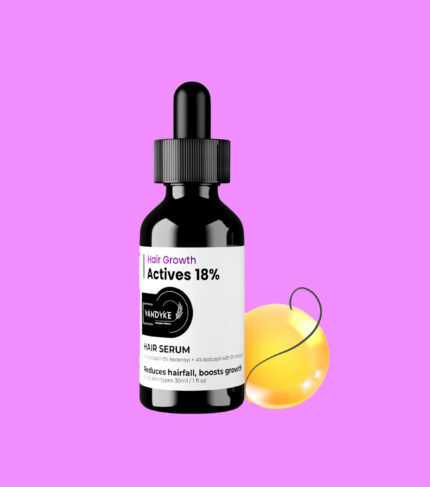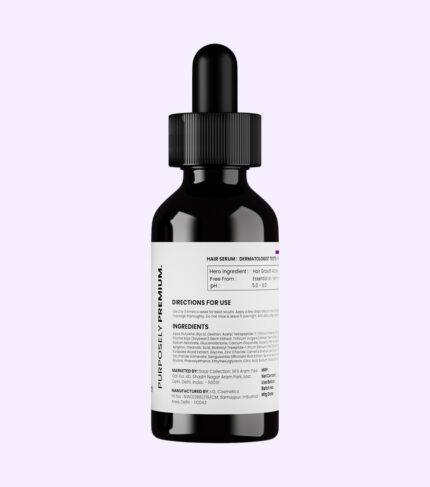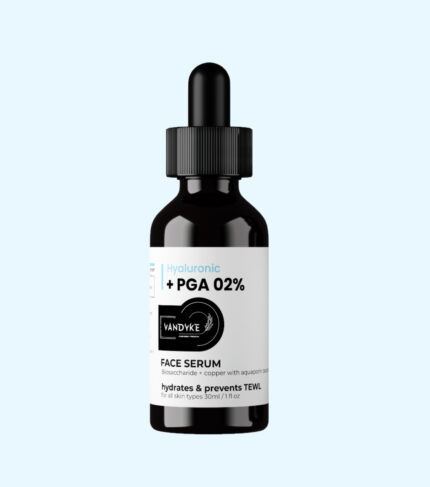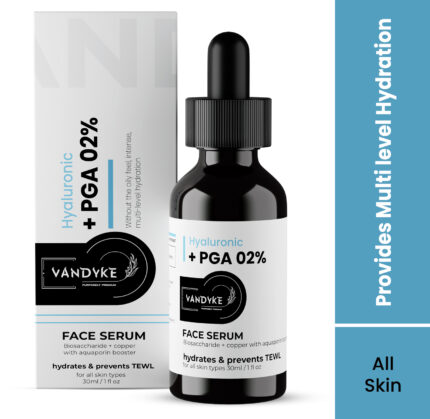Is SPF 100 Dangerous You Need to Know
Sunscreen is an important aspect of protecting your skin from the sun’s ultraviolet (UV) radiation. You’ve undoubtedly seen SPF (Sun Protection Factor) figures ranging from 15 to 100 when shopping for sunscreen. However, what about SPF 100? Is it safe, or does it have the potential to be harmful? Vandyke will investigate the facts and misconceptions surrounding wide spectrum sunscreen or SPF 100 in this detailed post to help you make an informed decision and protect your skin from sun damage.
The Importance of Sunscreen
Sunscreen is a skincare product that protects your skin from the sun’s damaging ultraviolet (UV) radiation. These rays can cause a variety of problems, including sunburn, accelerated aging, and an increased risk of skin cancer. Sunscreen works as a barrier, absorbing or reflecting UV rays and preventing them from invading your skin.
What is SPF?
SPF, or Sun Protection Factor, is a widely accepted measure of a sunscreen’s ability to protect your skin from UVB (ultraviolet B) rays. UVB rays are the primary cause of sunburn and have been linked to the development of skin cancer. SPF ratings, which are prominently featured on sunscreen product labels, represent the amount of protection provided by a certain sunscreen against UVB radiation. Here’s a simplified overview of SPF numbers and the degrees of protection they provide:
- SPF 15
Provides approximately 93% protection against UVB rays. This means that it allows about 7% of UVB rays to reach your skin.
- SPF 30
Offers roughly 97% protection, allowing only about 3% of UVB rays to penetrate your skin.
- SPF 50
Provides nearly 98% protection, permitting just 2% of UVB rays to reach your skin.
- SPF 100
Offers a very high level of protection, blocking approximately 99% of UVB rays. It allows only a minimal 1% of UVB rays to reach your skin.
These SPF values assist consumers in selecting sunscreen solutions that meet their unique sun protection needs and skin types, lowering the risk of sunburn and limiting the damaging effects of UVB radiation on the skin.
Myth vs Reality: Exponential Protection
One widespread myth is that greater SPF values provide exponential protection. In other words, many individuals assume that SPF 100 offers twice the protection of SPF 50. This, however, is not correct. The UVB protection differential between these two high SPF values is negligible.
Advantages of SPF 100
High SPF sunscreens like SPF 100 do have certain advantages:
- High UVB Protection
One of the most important benefits of SPF 100 is the high amount of UVB protection it provides. With an SPF of 100, your sunscreen should block around 99% of UVB rays. This might be useful for people with extremely fair or sensitive skin who want more protection.
- Extra Security for Specific Situations
SPF 100 might provide further piece of mind in circumstances when you expect lengthy exposure to bright sunshine. For example, if you want to spend lengthy amounts of time at high elevations or on tropical beaches, the additional degree of protection may be advantageous.
Considerations for SPF 100
While SPF 100 has advantages, there are some drawbacks to wearing high SPF sunscreens:
- Thicker Formulation
High SPF sunscreens are typically heavier and may feel less pleasing visually. They can be more difficult to integrate into the skin and may leave a visible white cast, which some individuals dislike.
- Potentially Less Cost-Effective
Sunscreens with extremely high SPF values, such as SPF 100, may be more expensive than lower SPF choices. For many people, the additional protection they give may not be noticeably different from SPF 50. As a result, they may be less cost-effective for regular use.
- Diminishing Returns
Going above SPF 50 typically results in decreasing returns in terms of UVB protection; for most people, SPF 100 may not provide significantly more protection than SPF 50; in essence, the extra protection is quite negligible when compared to the rise from SPF 30 to SPF 50.
Practical Application of Sunscreen
- Suitable for Specific Situations
SPF 100 might be useful and practical in some conditions. SPF 50, on the other hand, provides adequate UVB protection for the majority of people and activities.
Correct Application
The efficacy of your sunscreen is dependent on how it is applied:
- Apply sunscreen generously to all exposed skin regions.
- Reapply every two hours, or more frequently if swimming, sweating, or wiping your skin with a towel.
- Keep in mind that sunscreen takes time to soak into your skin before it becomes effective. Apply it at least 15-30 minutes before going out in the sun.
Debunking the Myth
Consider the following to explain the misconception of exponential protection linked with high SPF values:
- The SPF scale is not a linear scale. SPF 30 screens out around 97% of UVB rays, whereas SPF 50 filters out 98%. The difference in protection is about 1%.
- SPF 100 protects against 99% of UVB radiation. In contrast to SPF 50, it only provides a 1% increase in protection.
The Role of UVA Protection
While SPF ratings are important for evaluating UVB protection, you should also include UVA (Ultraviolet A) protection in your sun care regimen. UVA rays are a major issue since they promote premature skin aging, such as wrinkles and age spots, and can possibly lead to skin cancer.
To get total UV protection, it is necessary to use a broad-spectrum sunscreen. Broad-spectrum sunscreens shield your skin from UVA and UVB rays. This dual protection helps to avoid both the short-term effects of sun exposure, such as sunburn, as well as the long-term consequences, such as premature aging and skin cancer risk.
Incorporating a broad-spectrum sunscreen into your daily skincare regimen is a wise decision for protecting your skin from the whole spectrum of harmful UV radiation, supporting healthy, young skin, and lowering your risk of sun-related skin problems.
Practical Guidelines for Sun Protection
- Factors Beyond SPF
When selecting a sunscreen, consider factors beyond just the SPF value:
- Broad-Spectrum Protection: Look for a sunscreen labeled as “broad-spectrum” to ensure it protects against both UVA and UVB rays.
- Water Resistance: If you plan to swim or engage in physical activities, opt for a water-resistant sunscreen.
- Skin Type: Choose a sunscreen suitable for your skin type. There are options available for sensitive skin, oily skin, and more.
- Cosmetic Appeal: Consider how the sunscreen feels and looks on your skin. Sunscreens are available in various formulations, including creams, lotions, gels, and sprays.
Expert Advice
To select the best sunscreen for your personal needs, see a doctor or skincare professional. They may provide you specific advice depending on your skin type, concerns, and daily activities.
Vandyke suggests you use sunscreen with 50 spf. Because this is the best sun protection factor in a sunscreen for a normal use. If you are looking for good SPF 50 sunscreen then you can use vandyke spf 50 sunscreen for your skin. This is spf 50 face cream non greasy and very light weight. best sunblock for melasma.
Conclusion and Recommendations
Finally, SPF 100 sunscreen, like other very high SPF sunscreens, can be useful in particular conditions and for people with extremely sensitive skin. However, for most people and normal daily use, SPF 50 provides enough protection at a lower cost. Whatever SPF you choose, proper application and reapplication are critical for optimal sun protection.
If you have particular questions regarding sun protection or skin health, you should see a dermatologist. They can provide individualized advice on the best sunscreen and skincare routine for your requirements.
Remember that the efficacy of sunscreen extends beyond its SPF number. Broad-spectrum protection, regular and thorough application, and UVA protection are all essential components in protecting your skin from the sun’s damaging effects.
Choose vandyke skin care tips and vandyke skin care products because we make our products;
“Purposely Premium”

